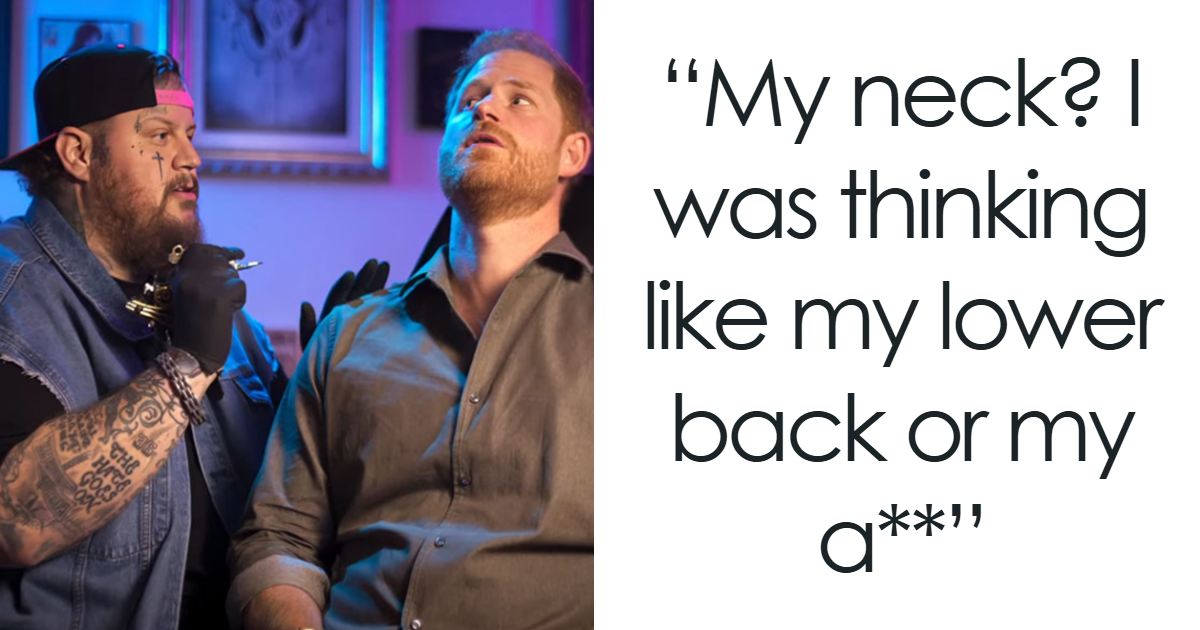In a recent promotional video for the Invictus Games, Prince Harry showcased his playful side, but not everyone was amused by his choice of words.
The Duke of Sussex, a familiar figure in the public eye, found himself at the center of yet another debate following the release of this lighthearted sketch.
With American country artist Jelly Roll by his side, Harry aimed to generate excitement for the upcoming sporting event, but his humor has drawn both applause and criticism.
The video, designed to promote the Invictus Games set to take place in Vancouver, Canada, in February 2025, features Harry and Jelly Roll engaging in a comedic exchange.
While some viewers appreciated the Duke’s attempts at humor, others were quick to voice their disapproval regarding his language and overall demeanor.
This has ignited a polarizing discussion about the appropriateness of his antics, especially given his royal background.
Filmed at Eastside Inc. Tattoo Parlor in New York, the clip kicks off with Jelly Roll teasing Harry about getting his first tattoo as a representation of the Invictus Games.
Harry, playing along, feigns surprise and clarifies that he’s there to invite Jelly Roll to perform, not to get inked.
However, Jelly Roll ups the ante by suggesting he would ink Harry if he agrees to perform, leading to a playful banter about potential tattoo locations.
As the sketch unfolds, it takes a humorous turn when Jelly Roll proposes tattooing Harry’s neck.
The scene wraps up with Jelly Roll pretending to tattoo Harry while exclaiming, “I’ll see you in Vancouver!” While intended to be a light-hearted promotion, the video has sparked a broader conversation about Harry’s role as a former senior royal and the appropriateness of his comedic choices.
The Invictus Games, which Harry founded in 2014, serve as an international platform for wounded, injured, and sick servicemen and women.
Inspired by his military service, Harry envisioned these games as a way to honor and support veterans through the power of sports.
The upcoming Vancouver edition is expected to feature adaptive sports like wheelchair basketball and indoor rowing, fostering camaraderie and mental health awareness among participants.
Despite the playful nature of the promotional video, many viewers took to social media to express their discontent.
Critics pointed out that Harry’s use of casual language seemed unbefitting for someone of his stature.
One user on X, formerly Twitter, questioned how this comedic skit could be beneficial for veterans, calling it “cringe.” Royal commentator Angela Levin echoed this sentiment, noting that Harry’s language didn’t align with his royal title.
Others were even more critical, arguing that such antics tarnish Harry’s image and distract from the noble cause of the Invictus Games.
Comments ranged from labeling him an embarrassment to suggesting that he was making the event too self-centered.
Critics expressed concern that the focus was shifting away from the veterans and onto Harry himself, which they deemed inappropriate.
On the flip side, many fans defended Harry, praising the video for its humor and creativity.
Supporters argued that his lighthearted approach made the event more relatable to a broader audience.
Some likened his antics to Queen Elizabeth II’s memorable skit with Daniel Craig during the 2012 London Olympics, highlighting the charm of royal humor.
Harry’s efforts to redefine his public persona since stepping back from royal duties in 2020 have certainly been met with mixed reactions.
He has channeled his energy into personal projects, including the Invictus Games and his Netflix endeavors.
While these initiatives have brought him closer to his passions, they have also attracted criticism from those who expect him to uphold traditional royal decorum.
The Tattoo Parlor video illustrates the delicate balance between humor and respect when promoting a serious cause.
While some argue that Harry’s approach helps humanize the event and draws attention in a crowded media landscape, others worry that it risks overshadowing the inspiring stories of the participants, which lie at the heart of the Invictus Games.
As the event approaches, the focus will likely shift from promotional controversies to the incredible achievements of the competitors.
For Harry, the Games symbolize a commitment to honoring those who have served, showcasing their resilience and determination.
His military background fuels his passion for creating opportunities for veterans to heal and thrive, making this initiative deeply personal for him.
With the Vancouver edition on the horizon, supporters hope that future promotional efforts will strike a more balanced tone, ensuring that the veterans’ stories remain central.
Meanwhile, critics will be watching closely to see how Harry navigates the complexities of his new life while balancing his royal legacy with personal ambitions.
As the Invictus Games continue to grow in significance, one thing remains clear: Prince Harry is dedicated to supporting veterans, regardless of the occasional controversy surrounding his methods.
For many, his commitment to the cause far outweighs any missteps, ensuring that the Games remain a powerful symbol of hope and resilience for years to come.
Related Stories

